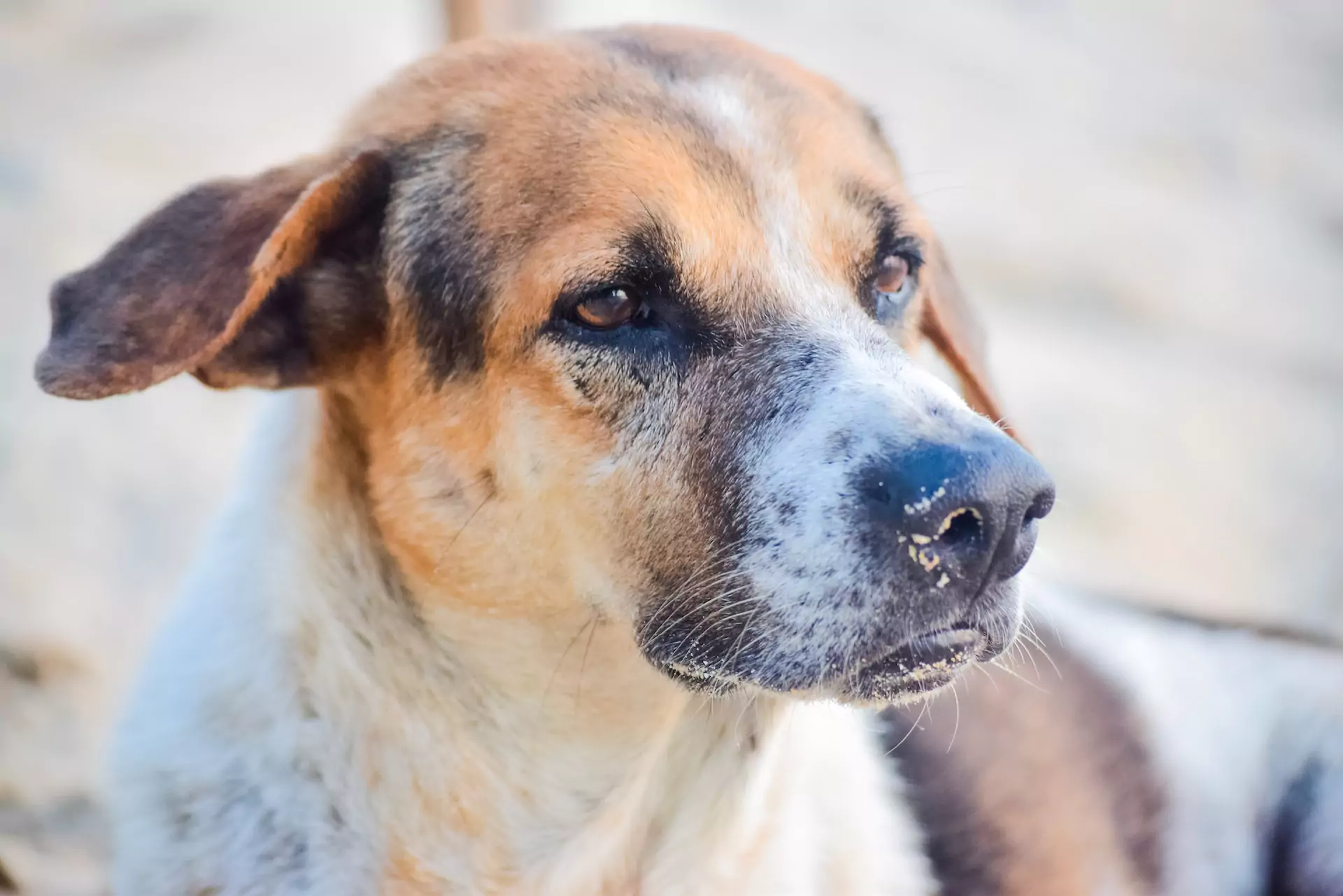Many dog owners may not realize that their canine companions can experience anxiety similar to humans. Identifying the signs of anxiety in dogs is crucial for providing the necessary support and intervention. Anxiety in dogs can manifest in various ways, from subtle behavioral changes to more overt symptoms. These may include excessive barking, unusual aggression, or destructive behaviors like chewing and digging. Physical signs such as trembling, excessive drooling, or changes in appetite can also indicate that a dog is struggling with anxiety. Understanding these signs is the first step in helping your furry friend lead a happier, more relaxed life. By recognizing the symptoms early, you can seek veterinary advice and implement strategies to alleviate their stress. This article explores the common signs of anxiety in dogs, why they occur, and effective ways to help your pet manage their anxiety.
Our canine buddies are extremely emotional creatures. Fido can experience feelings like fear, depression, loneliness, and grief, just like people can. And, like humans, our canine companions can experience anxiety. This can be very difficult for them! This post by a Guelph, ON veterinarian provides useful insights into the problem of dog anxiety.
Why Do Some Dogs Experience Anxiety?
Anxiety in our canine pals can be caused by a multitude of variables, including Fido’s temperament, background, living conditions, and breed. That said, there are certain common factors.
Let’s look at some of the major ones:
Major changes: Our pets are creatures of habit, and large changes can cause them great distress. Moving, home changes, the loss of a beloved owner, altered schedules, and the arrival of a new owner are some instances.
Fido may also become uncomfortable and disturbed when placed in a novel area or situation. Interacting with unexpected people or animals can be very stressful for our beloved canine companions. Even daycare or trips to the park can upset some dogs!
Lack of Proper Socialization: Dogs who have not been properly socialized may exhibit signs of anxiety in dogs or aggression as they age. When Fido is a puppy, he should be taken to new areas and meet new people. These encounters will help him develop a broad perspective and a positive attitude toward the world.
Specific Fears: Did you know that dogs can develop phobias? Thunderstorm anxiety is a prime example. Many dogs are terrified of loud noises, such as fireworks. Another example would be a dog who has spent a lot of time in kennels and has developed a fear of crates. (Unfortunately, this is typical in pets who have been abused or neglected).
Illness: Our pets are susceptible to a variety of illnesses and injuries. However, when they feel sick, they have no idea what is wrong with them. Anything that interferes with Fido’s senses, movement, or nervous system may cause anxiety. Canine dementia, for example, can induce uneasiness in elderly canines. Other potential explanations include trauma, age-related cognitive impairment, and simply genetics.
Contact your veterinarian for further information.
What is Separation Anxiety in Dogs?
Separation anxiety is the most prevalent type of dog anxiety. Fido is essentially geared to operate as part of a pack. In the wild, dogs typically stick with their friends. Being left alone can make your pooch anxious, lonely, and melancholy. If you return to find that your pet has made a mess while you were away, it’s quite likely that separation anxiety was the cause. (Note: This is probably why some puppies wail when left alone. Fido may be attempting to tell you where he is!)
Separation anxiety can impact any dog. However, it is more common in rescued and rehomed dogs, presumably because they have been abandoned or separated from their previous owners, which can be quite traumatizing for them.
What Are the Signs of Canine Anxiety?
When it comes to monitoring Fido’s well-being, recognizing the signs of anxiety in dogs is vital. Since Fido can’t verbally express his emotions, it’s up to you to identify these warning signs effectively.
These may fluctuate according to Fido’s stress level and the source of his grief. For example, if your pet is afraid of anything specific, such as a loud noise or fireworks, they may shiver, tuck their tail, seek refuge, or flee the area. One of the reasons why lost pet reports tend to increase around the Fourth of July is that many dogs are scared of the loud noises and confusion generated by fireworks and attempt to flee.
When dogs with separation anxiety are left alone, they may exhibit destructive behaviors such as digging and gnawing.
Here are a few key symptoms:
- Panting
- Pacing
- Licking
- Trembling
- Tail-Tucking
- Hiding
- Reduced Activity
- Escape Attempts
- Tail Chasing
- Diarrhea
- Aggression
- Fear Urination
- Hot Spots/Lesions From Licking Or Biting
- Tail-Chasing
- Yowling/Barking when left alone
- Destructive Behaviors (getting into the trash, destroying furniture)
- Cowering
- Digging
- Not eating
- Soiling inappropriately
- Restlessness
- Licking the lips
- Showing the whites of the eyes (whale eye)
Anxiety in dogs can sometimes lead to aggressive behavior.
If you feel your dog is anxious or if you notice any of the following symptoms, contact your veterinarian immediately.
Do Some Dog Breeds Have More Anxiety Than Others?
Breed is just one aspect, but it does have an impact. Although anxiety can affect dogs of all breeds for a variety of reasons, particular breeds may be predisposed to it. This list includes the following pups:
- Vizsla
- Cavalier King Charles Spaniel
- Basset Hound
- Dachshund
- Bichon Frise
- Toy Poodle
- Labrador Retriever
- Cocker Spaniel
- German Shorthaired Pointer
- Greyhound
- Mini Schnauzer
- Shetland Sheepdog
- Yorkshire Terrier
- Chihuahua
- German Shepherd
- Australian Shepherd
- Border Collie
- Jack Russell Terrier
As previously stated, dogs that have been abused, neglected, or rehomed are vulnerable, as are those with particular medical disorders such as dementia. For more information, contact your Guelph, ON, veterinarian.
How Can I Help My Anxious Pet?
Fortunately, there are various ways you may use to help your furry buddy improve his capacity to cope with worry.
First and foremost, contact your veterinarian. If Fido’s worry is caused by an undiagnosed medical issue, it is critical that it be diagnosed and treated as soon as possible. Some puppies might benefit from behavioral instruction. Medication can also assist. (Note: Before administering anything to your dog, always consult your veterinarian.)
Also, make sure your pet gets enough mental and physical activity. Taking Fido for walks and playing will allow him to release pent-up energy in a healthy way. This is also ideal for developing a deep bond with your canine companion. Establishing a consistent plan for your pet’s walks and playing will help to maintain a sense of stability, which is also good.
If your pet has separation anxiety, you could consider getting Fido a buddy. Of course, this will depend on your dog’s personality and past. Take some time to consider this before making a decision. Adoption is a significant commitment, so make sure it’s the right decision. You’ll also need to consider your family, finances, and schedule. If everything seems good, the next step is to find the perfect match. This is critical: if Fido dislikes his new friend, it may exacerbate his anxiety!
Products that induce relaxation, such as calming clothing, appropriate chews, comfortable mattresses, and interesting toys, can also be beneficial. Ask your veterinarian for recommendations.
It’s critical to know what to avoid. Never punish your dog for showing uneasiness or anxiety. We understand how unpleasant it is to discover that your pet has eaten your carpet, but reprimanding him may exacerbate the situation. Fido does not understand the concept of punishment; he is only attempting to communicate and soothe himself. Scolding him could not only confuse him, but could actually instill fear in him. Positive reinforcement would be your most effective strategy.
Another thing to avoid is overcoddling your pet. You don’t want to reward him for acting nervous, either!
Ask your Guelph, ON veterinarian for specific advice.
Signs of Anxiety in Dogs (2025): Key Indicators & Management Strategies
What does it mean when dogs show anal gland expression during anxiety?
When dogs express their anal glands during episodes of anxiety, it’s a physiological response to stress. The anal glands, located on either side of the anus, normally secrete a scented fluid during defecation. However, when a dog is frightened or extremely anxious, involuntary gland expression can occur. This reaction is similar to other anxiety-induced behaviors, such as shaking or excessive panting, and serves as a sign of significant distress in the animal. It’s crucial for pet owners to recognize and address the underlying causes of their dog’s anxiety with the help of a veterinarian.
What is ‘whale eye’ and what does it indicate?
‘Whale eye’ in dogs refers to when the whites of their eyes become prominently visible, often as a crescent shape around the iris. This visual cue typically indicates a high level of stress or discomfort in the animal. It can be a sign that the dog feels threatened or anxious and may be a precursor to defensive behavior. Observing ‘whale eye’ is crucial for owners and handlers as it provides an early warning to adjust the environment or interaction to prevent further distress or potential aggression.
What role does routine and predictability play in managing anxiety?
Routine and predictability are vital in managing anxiety in dogs. These elements create a stable environment where the dog can anticipate daily activities without stress. Consistency in walks, feeding times, and play sessions helps minimize uncertainty that can lead to anxious behavior. A structured schedule reassures dogs by reducing the number of unpredictable events they face, which is especially beneficial for dogs with separation anxiety or fears triggered by new situations. Therefore, maintaining a regular routine is a key strategy in helping anxious dogs feel more secure and less stressed.
How do you manage anxiety during specific situations like storms?
To manage anxiety in dogs during storms, creating a safe space where the dog can retreat is effective. This area should be quiet and sheltered, possibly with sound-proofing to dampen the noise. Playing calming music or using white noise can also help mask the sound of thunder. Additionally, anxiety wraps or vests provide comfort by applying gentle pressure, similar to swaddling a baby. Engaging in soothing activities, like gentle play or cuddling, can distract and relax the dog. Consultation with a veterinarian about anti-anxiety medications or supplements can also be beneficial for severe cases.
What specific anti-anxiety medications are available for dogs?
Several anti-anxiety medications are prescribed for dogs experiencing significant anxiety. These include SSRIs like fluoxetine and sertraline, which help to regulate mood. Tricyclic antidepressants such as clomipramine are also used for their anti-anxiety effects. For immediate relief in particularly stressful situations, veterinarians may prescribe benzodiazepines like alprazolam. Each medication has specific indications and potential side effects, so a veterinarian’s evaluation is crucial to determine the most appropriate treatment based on the dog’s health profile and the nature of their anxiety.
Schedule An Appointment At Our Guelph, ON Pet Clinic.
Do you have any questions about your dog’s health and care? Feel free to contact us at your Guelph, ON pet hospital! We are more than pleased to assist!






!Social Media Icons